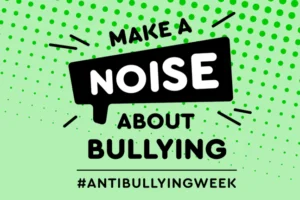Childhood and adolescence is a time when young people are discovering ‘who they are’ and explore their identity, style and character. It is a time that helps young people form their own values, ideologies and dictates the choices they make in the future.
Very few people actually ‘choose’ their identity; instead it is created by outside influences such as friends, family and social interactions. We behave and portray ourselves in a way we are expected to behave in that present company. If this portrayal of ourselves does not line up with our actual values and ideals, it can make one feel lost and confused about who they actually are.
Influence of social media on values and identity
With the advent of the internet and social media, this process has now moved to the online world as well as the offline. With the internet and social media being an intrinsic part of their life rather than a tool, it can leave young people unable to make the distinction between their close online friends to their offline. The internet and social media allows young people to find groups with similar interests and tastes and join communities they may not have access to offline, allowing them to grow and develop with the support of those with similar ideals. However, when the process is taken online, the amount of people who can have an influence on young people increases from their small circle of friends and family to a potential pool of thousands of ‘friends’ and ‘followers’.
Dealing with instant feedback on social
Whilst social media brings amazing opportunities to make connections to a wider range of communities, the amount of people able to give us feedback can be daunting. For young people trying to explore their identity, learning how they need to behave or look to get ‘likes’, ‘followers’ or ‘Snaps’ by their online audience, young people may be prevented from fully expressing themselves and achieving their potential.
Often young people will internalise the values and ideals of a parent, guardian or role model, so it is therefore important that these influencers take a guiding role in supporting young people and the formation of their identity.
Focusing on the positives to encourage teens
It is recommended that you explore the online world with your child or young person, talking to them about issues they may face such as pressure to conform or encountering negativity and provide guidance and advice. Discuss how the online world makes your child feel and encourage them to remember their positive qualities that make them unique.
From inception, the internet was designed to be a tool for people to access information. Today, it is much more than that. Interacting online is a key part of their development and should be treated as with any other social interaction. It is important though, that parents and guardians take the time to talk to their young people about the positive and negatives of the online world and help them to discover their own identify.





